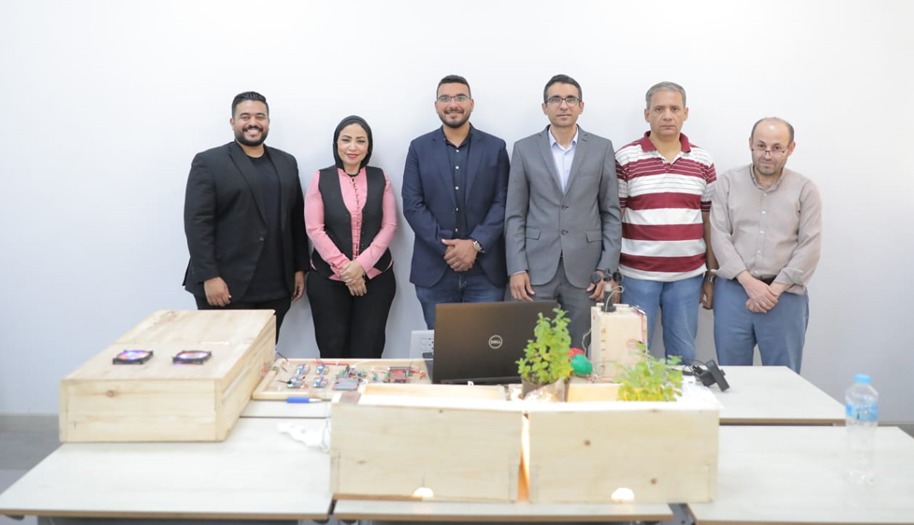Galala University’s Faculty of Computer Science and Engineering recently held the graduation project discussions for a new cohort of outstanding students. These promising individuals showcased their skills, creativity, and awareness of societal needs through projects that addressed real-world challenges across vital sectors in Egypt, including education, healthcare, and agriculture.
The discussions took place in the presence of Professor Dr. Tamer Mostafa Abdelkader, Dean of the Faculty, and distinguished faculty members who have continuously supported and guided the students throughout their academic journey. Faculty members expressed great admiration for the scientific and practical quality of the projects, reflecting the students’ strong understanding of community needs and market demands, as well as their readiness to contribute innovative solutions to key national sectors.
One of the standout projects was an artificial intelligence-powered Learning Management System (LMS) named THOTH Learn, developed to transform traditional education into a smart and personalized learning experience. The system streamlines academic processes and provides data-driven analytics to improve student performance. With features like chatbots, adaptive learning, and interactive dashboards, it serves students, instructors, and administrators alike, aiming to enhance the efficiency and responsiveness of educational institutions.
Another significant project in the medical field introduced an AI-driven diagnostic system for detecting liver tumors in MRI scans. The system integrates traditional machine learning methods with deep learning architectures to improve diagnostic accuracy and clinical usability. It employs Support Vector Machines (SVM) for voxel-level classification and slice selection, followed by 2D and 3D U-Net models for precise tumor segmentation. This advanced system contributes to early and accurate tumor detection, supports informed medical decision-making, and enhances the quality of healthcare services.
In the agricultural sector, students presented a smart farming system that leverages artificial intelligence and Internet of Things (IoT) technologies to improve agricultural practices in Egypt. The system uses sensors to monitor soil and crop conditions in real time, enabling automated irrigation and significant water conservation. It also applies AI techniques to identify plant types and diagnose agricultural diseases, allowing farmers to take rapid and effective action. The project also includes mobile applications and online platforms to help farmers manage their fields remotely, connect with agricultural communities, market products, and access supplies. This innovation supports Egypt’s Vision 2030 for sustainable agriculture and strengthens farmers’ ability to overcome water scarcity and climate challenges.







